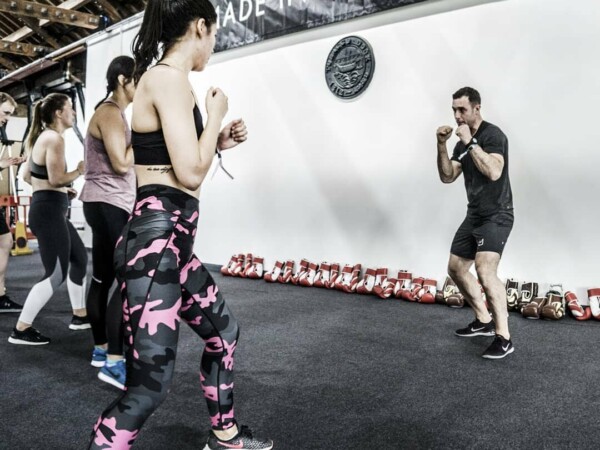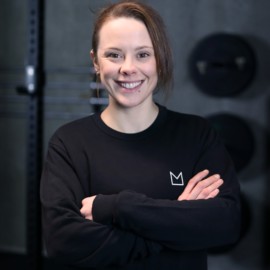
Lets face it, nutrition can be complicated. With so many diets, fads and conflicting information out there, it’s no wonder you feel confused and frustrated. You don’t know what to believe, you’re not sure what will work for you and where to start. All of which make it much easier to carry on eating the same and not make any changes.
If you’re reading this blog, then chances are you’re interested in changing your nutrition and/or eating habits? Maybe your goal is to lose body fat, build muscle or feel and perform better? You could be in a position where you have digestive issues or constant cravings and feel tired all the time?
Nutrition is very much an individual thing. Everybody has different body types, genetic make ups, metabolic rates, and handle foods differently. If you’re going to find out what works for you then I advise getting your blood work done and/or hire a coach. Blood work will tell you what foods you are able to tolerate and how your body reacts to certain nutrients. A coach has the knowledge and will be able to dial in your nutrition while keeping you accountable towards your goals.
However, there are some foundational principles when it comes upgrading your nutrition which the majority of people can benefit from. And this blog is aimed at just that. To provide you with the knowledge and some actionable takeaways that you can use straight away.
______
INCREASE WATER INTAKE
Humans need water to survive, which is why addressing water is one of the first steps. 70%-80% of our body is made up of water. Our blood, brain, internal organs, muscle tissue, even our bones contain traces of water. Water transfers oxygen and nutrients through the body. Water hydrates joints, internal organs, skin and helps with the removal of waste. Being hydrated supports every system in the body which is why it’s not only essential for survival, but for performance and wellbeing overall. Dehydration is a major cause of daytime fatigue, headaches, foggy memory, irritability and hunger pangs. Being hydrated is beneficial for fat loss as it regulates appetite, and thirst is often mistaken as hunger.
TIPS FOR DRINKING WATER
Drink 2-3 glasses of water upon rising before any tea, coffee or food. This clears the digestive tract, kick starts metabolism and helps the communication run more efficiently through the body.
Buy a water bottle and keep it with you at all times, and set daily drinking goals.
Make it a daily habit. Going to the toilet? Drink some water along the way. Going out for lunch? Drink a glass of water on your way out. Find times in your day were you can sneak in a glass or two that will add up by the end of the week.
So how much water should one drink? 1 litre every 25kgs is a good place to start, and use your thirst mechanism as a signal. If you get stomach rumbles around 3pm then reach for the water bottle rather than the coffee of biscuit. Drinking 2-3 glasses of water then waiting ten minutes is usually enough to curb any cravings or hunger.
______
FOOD QUALITY
Food quality matters. 100 calories of broccoli is not the same as 100 calories of chocolate.
People are constantly being exposed to fast, quick, convenient foods, which are come in a packet, carton, bag or box. Most of these foods are high in sugar, trans fat, chemicals, and artificial ingredients. They are hyper rewarding and send signals to the gut and brain which encourage you to eat more. They contain empty calories which doesn’t promote fullness and is a nasty combination for excess calories and added weight gain. High consumption of these foods contribute to mood swings, energy slumps, fat gain, and more serious issues such as type 2 diabetes and obesity. Food labels can be misleading, but you know what you shouldn’t be eating for the most part.
The body is designed to eat real food, provided by the earth. Our bodies have evolved to handle these foods and we absorb them best. These foods are nutrient dense, contain essential vitamins, minerals, antioxidants, that support the immune system, promote healthy gut bacteria, and provide cells with the building blocks to build a better body. It’s difficult to over eat these foods as they contain fibre and are nutrient dense which regulates appetite. Have you ever eaten 5 biscuits in a row? I guess yes! What about 5 apples? Probably not.
TIPS ON FOOD QUALITY
Eat as much real food as possible. A ratio of 80/20 to 90/10 works best, and the shape of your body will changed dramatically from this alone, even if you’re not very active or training.
If you are buying processed food then read the ingredients list. If there is a long list of ingredients with words you can’t pronounce then stay clear! You want the ingredients list to be as small as possible, and the food to be as close to it’s natural state as possible.
Have a kitchen makeover. Clear all your cupboards, fridge and pantry. Lay all your food out on the kitchen table and bin all the crap. There will be no temptation as you won’t eat it if it’s not in the house.
______
EAT LEAN PROTEIN
Lean protein is an essential nutrient. Organs, tissues, muscles and hormones are made up of some sort of protein. Protein contains important cholesterol for cells, it rebuilds tissues and protects the nervous and immune system.
Protein cannot be stored as body fat and will keep you fuller for longer. Lean protein contains amino acids that help build lean muscle tissue, especially you are training. Having more lean muscle on your body raises resting metabolism, and you’ll naturally burn more fat. Eggs, chicken, turkey, beef, fish, hemp, quinoa, and high quality protein powders are all great sources of lean protein.
TIPS ON PROTEIN
Go for quality on animal protein. Organic, free range, grass fed and wild caught, as these animals are a lot healthier and live a much more natural life than the factory farmed animals. Get to know where your meat has come from. Ask your butcher, local supermarket and source the best quality possible.
Eating 0.7g 1.2g per Ibs of bodyweight is a good range for daily intake. The best way to see if you’re hitting hat much is to track on an app like My Fitness Pal. If you don’t want to track that way then guys eat 2 palm sizes of protein at each meal, and women 1 + palm size of protein at each meal.
Rotate your sources to add variety and avoid potential food deficiencies. Rotate a protein source every 4 days or every week.
______
VEGGIES AT EACH MEAL
Vegetables contain high amounts of vitamins, minerals, enzymes, phytonutrients and are rich in antioxidants. Veggies improve gut health, immune system, skin complexion and fight off cancerous cells.
Low in calories and high in fibre, eating veggies at each meal will provide you with essential nutrients and will help control your appetite. Veggies also contain water that help replenish fluids from training and dieting.
TIPS ON EATING VEGGIES
Eat wide a variety. As many different shapes, sizes and colours as possible as this provides a full spectrum of micronutrients.
Aim for 2-4 servings a day. In fact eat as many greens veggies as you like!
Aim to eat veggies that are local, in season, as fresh as possible and free from herbicides and pesticides. Straight from garden to plate is best as these contain higher amounts of nutrients and may not be so damaging to health over time.
______
EAT CARBOHYDRATES
Low carb diets have become increasing popular in the mainstream. Many people are staying well away from carbs, or are afraid to even look at a one in the danger of getting fat. While people do handle carbs better than others, cutting them out completely plays havoc on metabolism, hormones, and can increase the chances of plateaus and potential future weight gain.
Sweet potatoes, white potatoes, wild rice, quinoa, gluten free oats, pumpkin, squash, sprouted bread and fruit are fibre friendly, nutrient dense forms of carbohydrates.
TIPS ON EATING CARBS
Eat carbs after training. Placing the majority of your carbs after training supports fat loss. Muscle stores are depleted when you train, and eating carbohydrates replenishes these stores helping you refuel while speeding recovery.
High and Low days. Have higher carb days when you are more active, and lower carbs days when you are less active. Carbs get broken down to glucose and stored in the liver. When the liver stores are full, extra glucose spills over and gets stored as body fat which is why people are scared to eat them. It’s not that carbs will make you fat, it’s the wrong sources and inactivity that leads to weight gain.
How many carbs should you eat a day? As a general guideline, Men 2 cup sized handfuls and Women 1 cup sized handful placed after training or before bed.
Saving carbs before bed is a protocol that can help you sleep better at night. Eating carbs secretes happy hormones which encourages the secretion of the sleep hormone, Melatonin. Quality sleep does wonders for your waistline as it helps the body handle carbs better, it releases fat burning hormones while you sleep and rejuvenates every cell in the body.
______
BE PREPARED
If you are prepared, then you are less likely to deviate from your diet. You know what you are eating and when which takes all the guess work out. This also saves time and prevents decision fatigue as you don’t have to wait in line and decide what to eat when lunching out. Being prepared helps you stick to your goals and brings your attention on other priorities helping you change your focus.
TIPS ON BEING PREPARED
Schedule in a shop. Block out 2 times in your week where you can do a food shop. Find a supermarket that is on your route to and from work. Or make an afternoon of it, by going to a local farmers market.
Make a list, and stick to it. Find recipes online and cook different lunches and dinners each week.
Food prep. Food prep doesn’t have to be a long drawn out event. Cook extras at dinner for lunch the next day, batch cook and save it in the fridge, or cook for three days in advance. An example is on Sunday cook to Monday to Wednesday and then again on Wednesday to Friday.
______
Upgrading your nutrition can be simple, and I hope this blog has helped. There is no one-size-fits-all approach or cookie cutter approach when it comes to nutrition. The best diet is the one you can adhere to. Find the simplest thing that can work for you and implement it and keep it going until it forms as a habit. A complete diet overhaul rarely works. Adjust according to your stress, sleep, daily energy levels and mood.
Eat well, keep consistent and be patient.
FOR MORE WISDOM BY WILLOUGHBY
GUV’NOR OF MANOR W1
@ADAMBWILLOUGHBY














